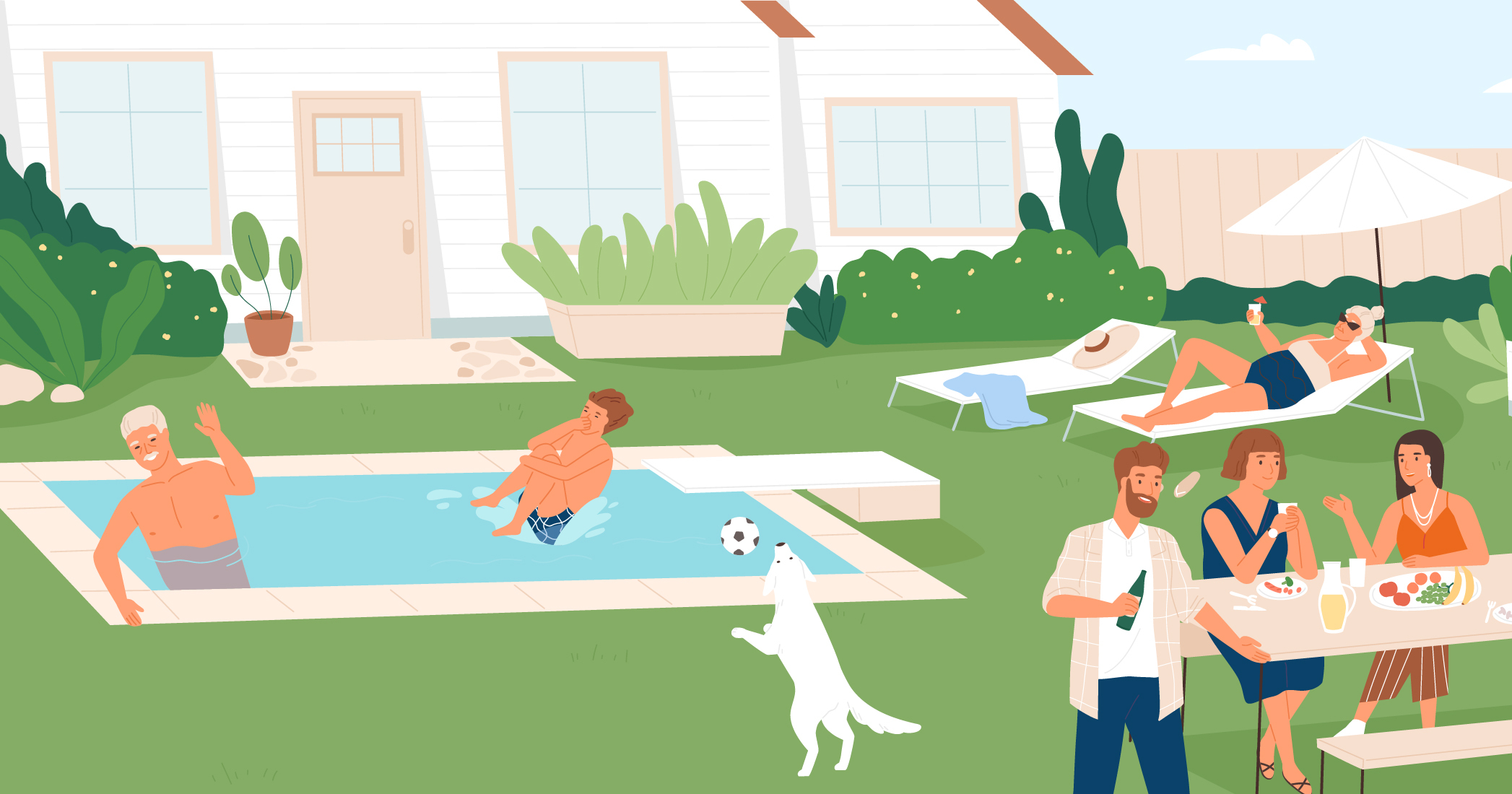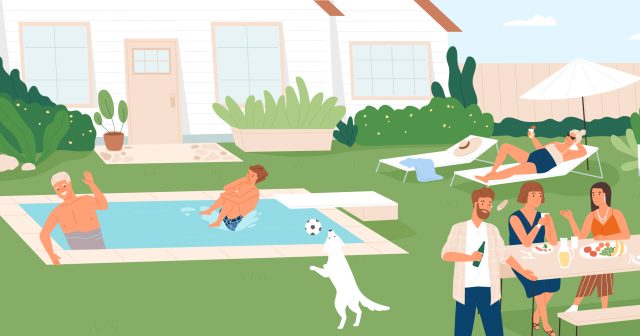Pool Safety Tips For Your Home
Despite the beauty and luxury of owning a pool in your backyard, nothing is more important than safety. A well-designed pool should never overshadow its fundamental purpose: providing a safe space for relaxation, fun, and memories.
To get the most enjoyment from your pool, it’s important to follow these essential safety tips.
What are the Most Common Safety Problems for Home Pools?
Home pools, despite their many advantages, come with their set of challenges. The most recurrent issues include:
-
Slippery decks
Often caused by water splash or algae growth, leading to slips and falls.
-
Lack of fencing
An unfenced pool can pose a risk, especially to kids and pets.
-
Poor pool maintenance
Dirty or cloudy water can conceal hazards or make it hard to spot someone in distress.
-
Inadequate safety equipment
Not having essential pool safety devices can delay your response in emergencies.
-
Lack of supervision
Accidents can happen in a split second, especially when no one is watching.

Tips for Pool Safety at Home
Home pool safety involves taking multiple important steps:
-
Keep your pool well maintained
A clean pool isn’t just aesthetically pleasing — it’s safer. Regularly skimming off leaves, ensuring water clarity, and checking the pool’s chemical balance will all help keep your pool safe to use throughout the year.
-
Ensure you have proper fencing in place
A sturdy pool safety fence, with an ideal pool fence height that complies with local regulations, is a must-have. Gates should be self-closing and self-latching, preventing unsupervised access by children.
-
Consider swimming lessons
Swimming lessons for kids (and adults) are invaluable. Learning to swim not only enhances enjoyment but drastically reduces the risk of drowning. Reach out to local organizations or the ‘Step into Swim’ initiative for guidance.
-
Add pool safety equipment
Equip your pool with pool safety nets, pool safety covers, and smart pool alarms. These pool safety devices act as a backup, ensuring a swift response in case of accidental falls or mishaps.
-
Always ensure someone is watching when people use the pool
Never underestimate the importance of supervision. Whether it’s kids playing or adults enjoying a quiet swim, always have someone keeping an eye out.
-
Be careful
Simple precautions make a world of difference. Don’t run around the pool, always check the water depth before jumping in, have floatation devices handy, and remember the golden rule: never swim alone.
-
Have a plan in case of an emergency
Preparation is key. Ensure everyone knows basic CPR, have emergency numbers at hand, and regularly review safety protocols with family and guests.
How Do You Childproof a Pool at Home?
Childproofing goes beyond a fence. Consider using pool safety covers when the pool isn’t in use, teach children the basics of pool safety, ensure toys are removed after play (to avoid tempting kids to retrieve them), and always have them wear life vests if they’re not strong swimmers.
How Do You Pet Proof a Pool?
Pets, especially dogs, can be as curious as kids. Pool safety for dogs includes teaching them where and how to get out of the pool, while a ramp or steps can be helpful. Also, pool safety nets can prevent them from falling in.
Always supervise your pets around the water and give them swimming lessons if possible.
At MPG, your safety and satisfaction are at the core of our mission. We strive to combine beauty with functionality, ensuring every pool we touch becomes a place for amazing memories.
Find your local Master Pool builder now.
